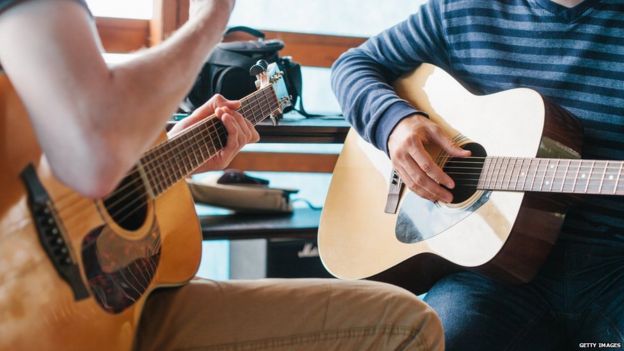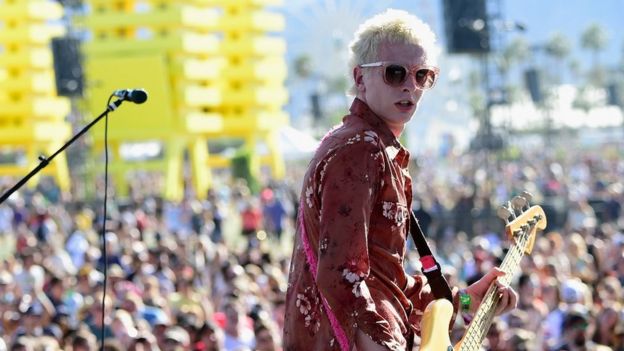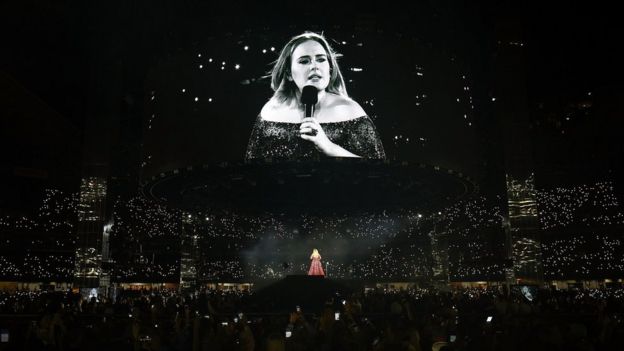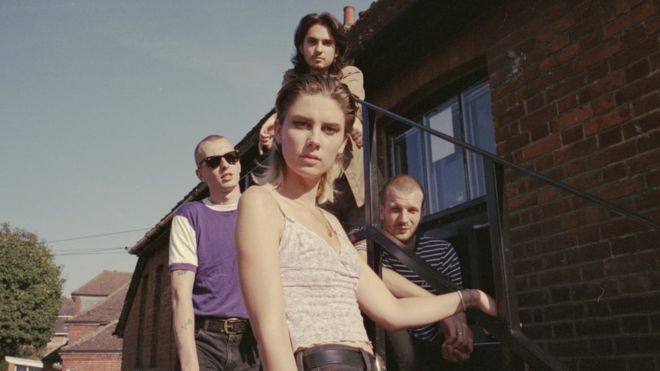Wolf Alice: Music education is being ‘lost’ in schools
By Sinead Garvan
Wolf Alice say they wouldn’t be a band now if they hadn’t had access to music education at school.
“We’re losing it. I don’t know where I would be without those kind of advantages,” singer Ellie Rowsell says.
“I did music for GCSE but I also reaped the benefits of extra-curricular things which were provided in my local community for free.”
There’s been warnings that the success of British music is at risk because the subject was being neglected.
Last year, the head of UK music, Michael Dugher, said future talent could be going to waste because of a drop in the number of GCSE places being offered in England.
 Image copyrightGETTY IMAGES
Image copyrightGETTY IMAGESDiane Widderson, from the Musicians’ Union, also has the same concerns.
“We have seen a worrying trend of schools not running A-Level music because they just haven’t got the numbers.”
Diane was speaking to Newsbeat at The Great Escape Festival where music in education was one of the key talking points.
“They are increasingly not running GCSE music because it is not seen as a subject that the school is judged on,” she said.
Fears have been raised that its children from poorer areas who are missing out the most.
“Those children in the most disadvantaged areas, they still get less opportunity,” says Matt Griffiths from the Youth Music charity.
“The barriers they are facing mean it is harder for them to make music.”
Theo from Wolf Alice adds: “You don’t know you like music if no-one gives you a lesson in it, then suddenly you are Bach or Camilla Cabello.”
 Image copyrightGETTY IMAGES
Image copyrightGETTY IMAGESIn January, the BBC found that 90% of the 1,200 schools it surveyed said there had been cutbacks of some kind in creative arts subjects.
Some music industry insiders blame the introduction of the English Baccalaureate (EBacc) – which measures how many pupils achieve a good GCSE in English, maths, two sciences, a language and humanity in secondary schools.
Francesca Treadaway, from the incorporated Society of Musicians – which looks after the rights of musicians – is campaigning to get more music into schools.
“The EBacc system is sidelining creative subjects in schools,” she told Newsbeat during a conference at the Great Escape Festival in Brighton.
“We have seen figures published by the Department for Education back in January that suggest uptake in music is now under 40,000 for the first time in a decade [in England].”
The Department for Education said: “Our drive to ensure all pupils benefit from a stretching core academic curriculum through the EBacc is not a barrier to pupils enjoying a high-quality arts education.
“In fact, since the introduction of the EBacc the percentage of pupils taking arts GCSEs has remained stable.”
 Image copyrightGETTY IMAGES
Image copyrightGETTY IMAGESNot everyone thinks music education is in trouble.
They point to initiatives set up by Arts Council England and apprenticeship schemes run by record labels and promoters that help get young people into music.
Paul Latham from Live Nation, which runs an apprenticeship scheme, says: “It is accessible because music is something young people engage in.
“The problem is these kids don’t know how to engage in it and that is what we need to do, make those connections.”
